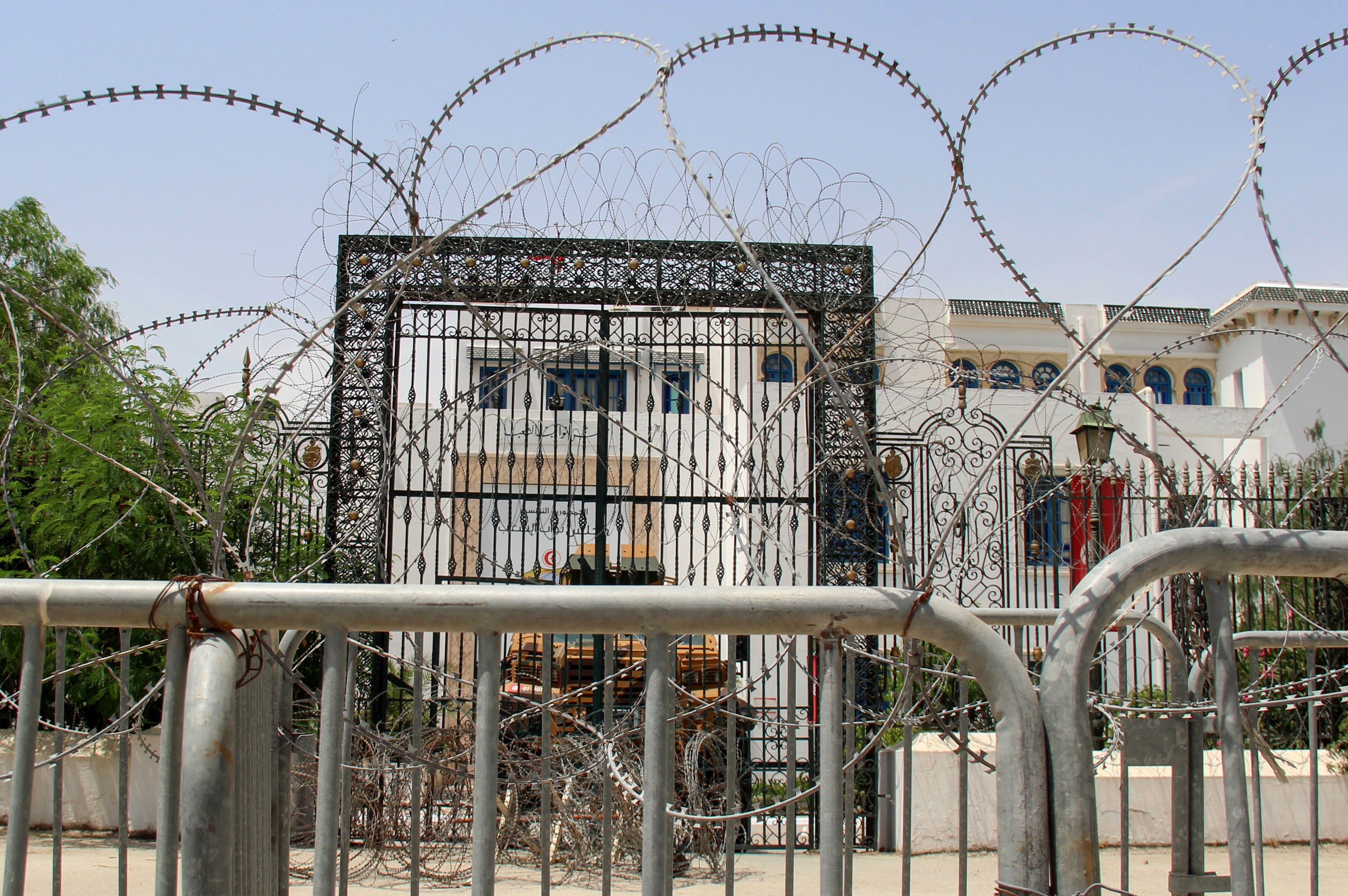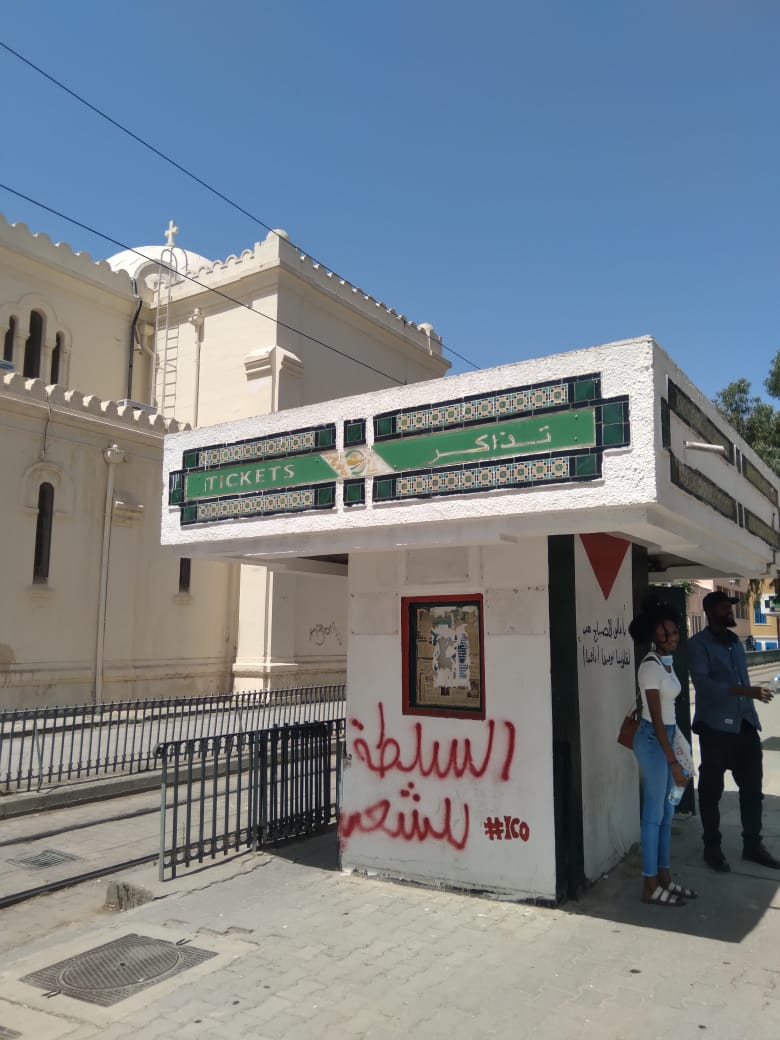Tunisia crisis deepens as inquiry launched into whether political parties received foreign funding
Accusations of outside influence in Tunisian politics is likely to heighten current tensions

Your support helps us to tell the story
From reproductive rights to climate change to Big Tech, The Independent is on the ground when the story is developing. Whether it's investigating the financials of Elon Musk's pro-Trump PAC or producing our latest documentary, 'The A Word', which shines a light on the American women fighting for reproductive rights, we know how important it is to parse out the facts from the messaging.
At such a critical moment in US history, we need reporters on the ground. Your donation allows us to keep sending journalists to speak to both sides of the story.
The Independent is trusted by Americans across the entire political spectrum. And unlike many other quality news outlets, we choose not to lock Americans out of our reporting and analysis with paywalls. We believe quality journalism should be available to everyone, paid for by those who can afford it.
Your support makes all the difference.Tunisia’s judiciary has reportedly launched an investigation into three of the country’s leading political parties, including Ennahda and Qalb Tounes, on suspicion of receiving foreign funds during the 2019 election campaign.
It comes after the country’s president, Kais Saied, dismissed the prime minister, Hichem Mechichi, on Sunday and suspended parliament for 30 days. The president’s actions plunged Tunisia into its deepest crisis in a decade and led to accusations of a coup taking place.
A judicial source told Reuters that the investigation was opened on 14 July, weeks before the president staged his dramatic intervention on Sunday.
The investigation into foreign funding is taking place free from presidential interference, sources said.
Ayich Tounes, the populist movement that sprang up in 2019, is also being investigated.
All three parties involved are no strangers to controversy. Media mogul, Nabil Karoui, who founded Qalb Tounes, fought the majority of his 2019 presidential bid from the cells of Tunisia’s prison system, where he was being held for corruption charges he denies, but which remain ongoing.
Ennahda have been dogged by controversy almost since its inception. While details are scarce, accusations over foreign funding most likely relate to public suspicions over the political party’s close relationship to Qatar.
Ayich Tounes, for its part, has long been linked to the Rambourg Foundation.
Kais Saied’s dramatic intervention into Tunisian political life on Sunday remains overwhelmingly popular within the North African country. On Tuesday, the country’s Nobel Prize-winning National Order of Tunisian Lawyers, (ONAT) threw their weight behind the president, calling for an opening of all the records relating to past corruption, electoral interference and terrorism.
But Tunisia’s current direction of travel is unlikely to calm frayed nerves overseas.
In Washington, Republican senator Lindsey Graham said the US and its allies needed to go “all in” on Tunisia, including being “on the ground”. Elsewhere, Democrat Chris Murphy questioned the possibility of the UAE and Saudi Arabi lying behind the president’s actions.

Irrespective of outside involvement, the president enjoys enthusiastic support from a public long wearied with the theatrics and grandstanding of the country’s party politics. Successive Tunisian governments have come to be seen as having prioritised politics over the welfare of the country.
In recent weeks, the government’s woeful response to the global pandemic has proven to be a lightning rod for public distrust in parliament. Oxygen supplies within Tunisia’s chronically underfunded public healthcare system have long been at a premium as coronavirus cases continued to peak.
Compounding public perceptions of political ineffectiveness was the botched opening of vaccine centres over the Muslim holiday of Eid and the subsequent mudslinging between the prime minister and the minister of health over who was responsible for the debacle.
The president’s supporters have also characterised Tunisia’s largest party, the self-styled "Muslim democrats," Ennahda, as simply “Islamists” in an effort to undermine criticism of Saied’s intervention.
Ennahda has been a presence in almost every government since the revolution, which has done little to bolster its current credibility.
But for now, the country looks on, waiting to see what the president will do. He appears secure in the short term, with the conditional support of allies, but much of his backing is conditioned upon measures he has enacted, including reopening parliament at the end of its suspension.



Join our commenting forum
Join thought-provoking conversations, follow other Independent readers and see their replies
Comments